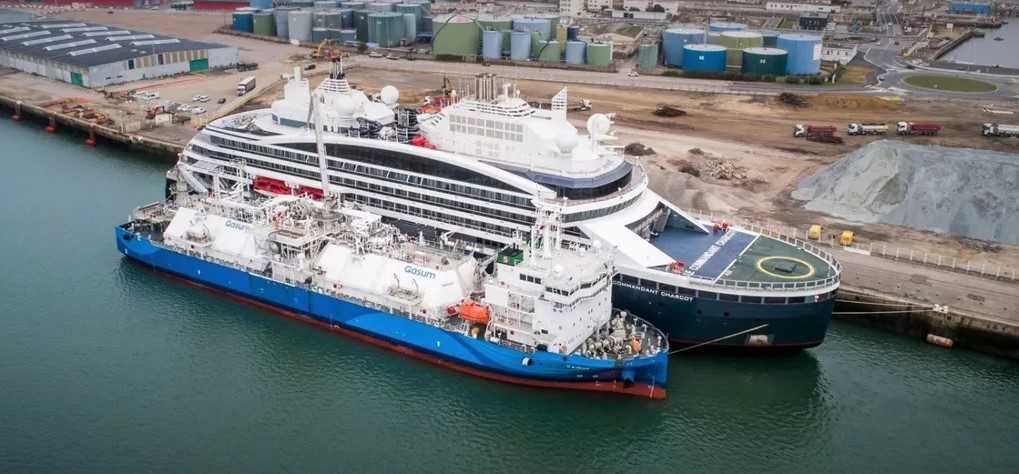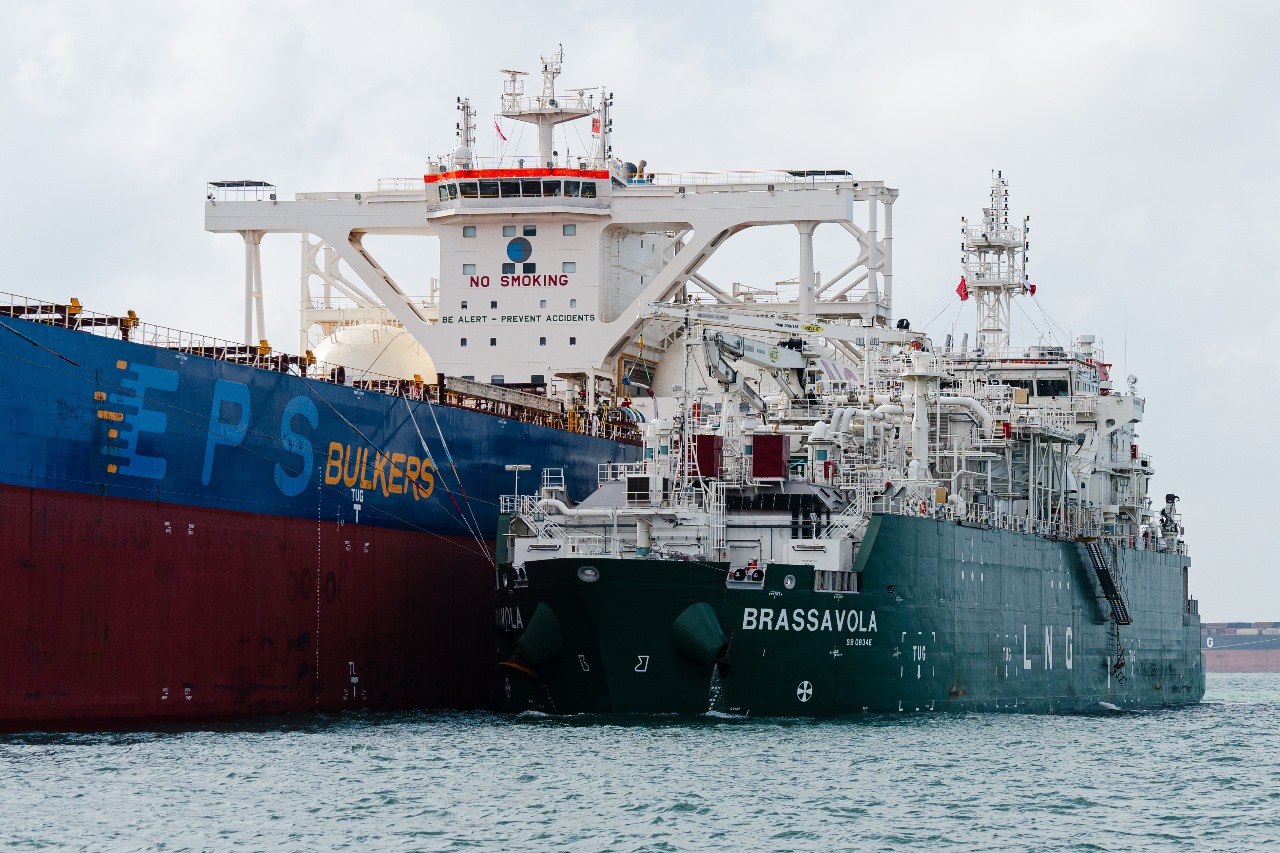LNG bunker supply vessel Kairos returns to Gasum’s fleet

Gasum’s LNG bunker supply vessel Kairos has been sub-leased outside the company since October 2022, but has now returned to Gasum’s own bunkering fleet. This increases Gasum’s bunkering capacity in the Northwest Europe bunker market.
Volume growth in the maritime LNG bunkering segment have been gathering speed steadily during 2023 and is expected to further pick up pace towards the end of the year. Having Kairos back increases Gasum’s ability to serve its maritime LNG and Bio-LNG customers as effectively as possible.
Kairos has a capacity of 7,500 m³ and is equipped with a dual-fuel engine using LNG as main fuel and is equipped with a range of technical features to be able to serve a wide range of marine customers and LNG terminals.
The ship has been designed to supply LNG to various types and sizes of vessels at all possible bunkering locations in Northwest Europe. The vessel can supply LNG with a transfer rate from 60 m³ per hour up to 1,250 m³ per hour.
The ship’s cranes have a range of up to 30 meters, which enables the vessel to serve even the largest customers in the market. Kairos is able to operate under harsh weather conditions and at high sea, due to the vessel being DP2 certified and built to ice class 1A.
Increasing availability of renewable gas
Switching to LNG from traditional maritime fuels means complete removal of SOx and particles, and a reduction of NOx emissions of up to 85 percent. LNG reduces CO2 emissions by approximately 20 percent. LNG is interchangeable with renewable liquefied biogas (Bio-LNG or LBG), which means that the two gases can be mixed at any ratio.
Gasum’s biogas cuts carbon emissions on average by 90 percent when compared with traditional fossil fuels. Increasing use of Bio-LNG is one of the concrete actions that will take the shipping industry towards a low-carbon future.
Gasum’s strategic goal is to bring seven terawatt hours (7 TWh) of renewable gas yearly to market by 2027. Achieving this goal would mean a yearly cumulative carbon dioxide reduction of 1.8 million tons for Gasum’s customers.

